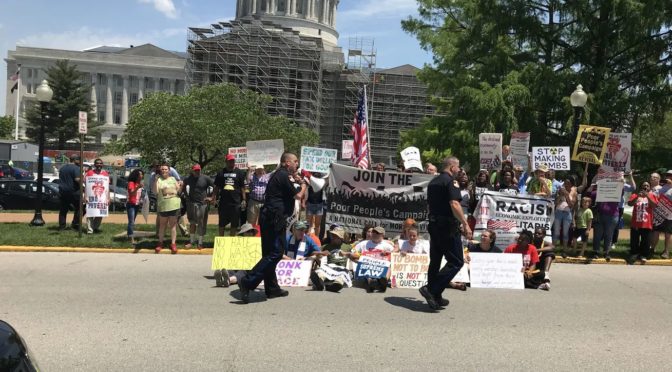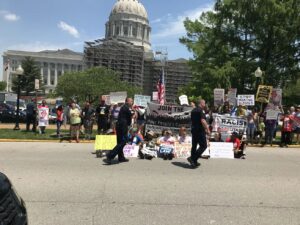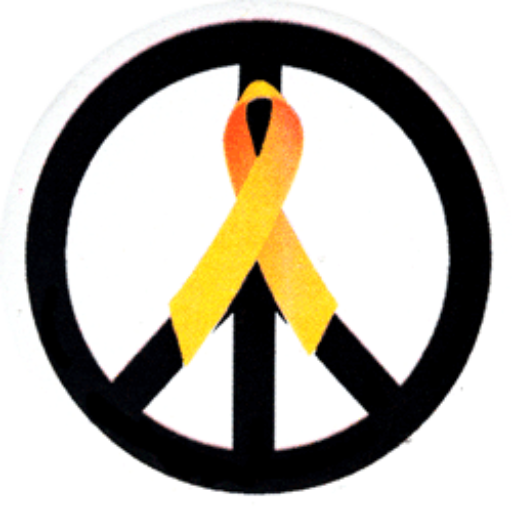
How Are We Supporting our Troops when 20 Veterans Die by Suicide Every Day?
Excerpts from the speech given by Mary Hladky, MFSO Steering Committee Member, on May 20th in Jefferson City, MO at a Poor People’s Campaign protest of militarism. Soon after Hladky
issued this critique, she and 16 others blocked a
street, were arrested, and were released.
I am Mary Hladky. My son, Ryan, was an Army
Infantry Officer. During his deployment in
Afghanistan, the troops experienced some of the
highest death and injury rates of the war.
Today I want to talk to you about the war economy
and the incalculable harm this obsession does to all
Americans, and especially soldiers.
War drains the treasury of money. The Costs of
War Project at Brown University says US wars over
the past 16 years have cost $5.6 trillion. Our
officials justify this spending in the name of
national security. There is little left, it seems, for the
welfare of the people.
These same officials defend these massive expenses
as part of “supporting the troops”. But supporting our
troops should mean bringing them home and
taking care of them when they return.
How are we supporting the troops when many
military families need public assistance such as
food stamps to make ends meet, while defense
contractors rake in record profits?
There are 3 million veterans of the wars in Iraq
and Afghanistan. These soldiers have seen more
combat than veterans of any other wars. Many have
experienced moral injury – a violation of a person’s
moral values, core beliefs. The shame, guilt, and
torturous remorse that becomes moral injury often
results in suicide.
How are we supporting our troops when 20
veterans, from all wars, die by suicide every day?
Today, here and across the country, and all over
the world, our voices declare our work for a more
peaceful world, the hope of a movement; to realize
that true security is not measured by the size of our
military, but the welfare of our people.
Just before the arrest of Mary Hladky, Michael
McPhearson, and other activists
Photo by Bennette Dibben, PeaceWorks

